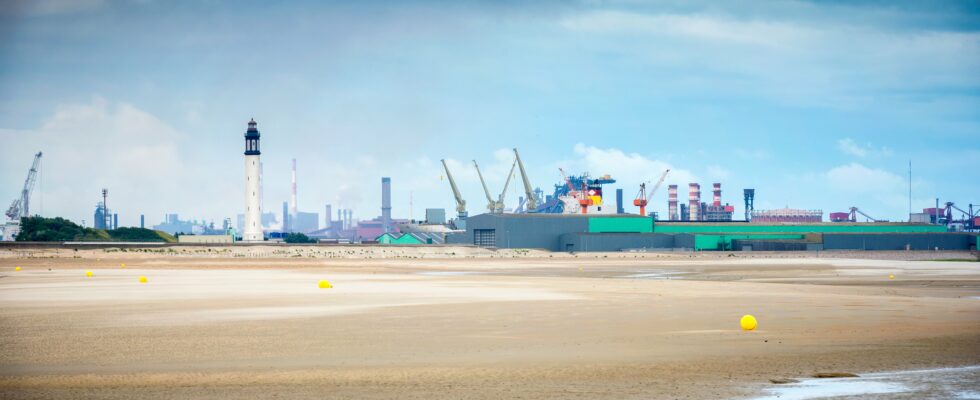This is a decade, France undertook to reach carbon neutrality by 2050. Starting with that of the industries which must drastically lower their greenhouse gas emissions (GHG). Transports, energy, construction, industrial sites like Dunkirk: largely helped by the State, all the major sectors of the economy have embarked on the battle and the front walking seems irreversible in our country. A voluntarism that contrasts with what is observed abroad. In the United States, Donald Trump has returned to the White House and leaves the Paris Accords. In China, GHG emissions are getting on the rise. Even the European Union is preparing to lighten your green pactyet adopted in 2019. Suffice to say that the general movement slows down and worried.
Around the port, the cranes dominate the horizon. Construction projects are increasing: housing, HLM, transport infrastructure. With 12,000 jobs scheduled by 2030, the city must anticipate the reception of new workers. The rehabilitation of the port area, which began ten years ago, revitalized a territory hated by deindustrialisation. In 2013, the municipality recorded the strongest demographic loss of the country, according to the calculations of the town hall. “It was necessary to switch to the 21st century industry,” sums up Patrice Vergriete, the mayor (DVG) of Dunkirk.
The locations are linked
And the public authorities have bet on decarbonation. First step: two new nuclear reactors in Gravelines and an offshore wind farm. These projects will cover the consumption of 4.5 million inhabitants, but not before 2040. Second step: adapt the water, heat and electricity networks. The manager of the electric transport network (RTE) has invested 1.5 billion euros to create and modernize infrastructure that meets the energy needs of future industrial players. “The stake was high,” said Laurent Cantat-Lampin, regional delegate of RTE.
Result at the turn of the 2020s: the locations were linked. Chemistry, agrifood, electric car… The French company Verkor has promised to build a gigafactory with 1,200 positions in the key to 2027. Its competitor, Prologium, aims “3,000 direct jobs”. “The territory is attractive thanks to the tools developed by the public authorities”, notes François Liron, founder of the Grain de Sail food group who is about to build his second factory, far from his Breton lands. In 2030, the CO2 hub, a network of pipes to collect and liquefy local carbon before storage at the North Sea, should strengthen this dynamic.
European battle
Despite these good intentions, difficulties persist. At the town hall, we admit “a constant need to convince the benefits of decarbonation.” In the fall, several actors, concerned about political instability and turbulence in the steel and automotive markets, have given up their installation. Among them, the Eramet mining group abandoned its project as a double recycling plant for electric vehicle batteries, initially scheduled for 2027.
Another setback, ArcelorMittal, the country’s main steel industry, has postponed the construction of haughty of decarbonized stoves despite state aid of 1.7 billion euros. Should we see a reason for worry? For the mayor, it is above all proof of “unfair competition” exercised by American and Chinese actors. Indeed, the cost of electricity remains a major obstacle for local industries, reaching 64.30 euros per megawat hour in France, against only 27.60 euros in the United States. Politicians as factory leaders now argue with the European Commission, for blocked prices contracts, essential for the competitiveness of Dunkirk. The final objective remains unchanged: carbon neutrality by 2050.
